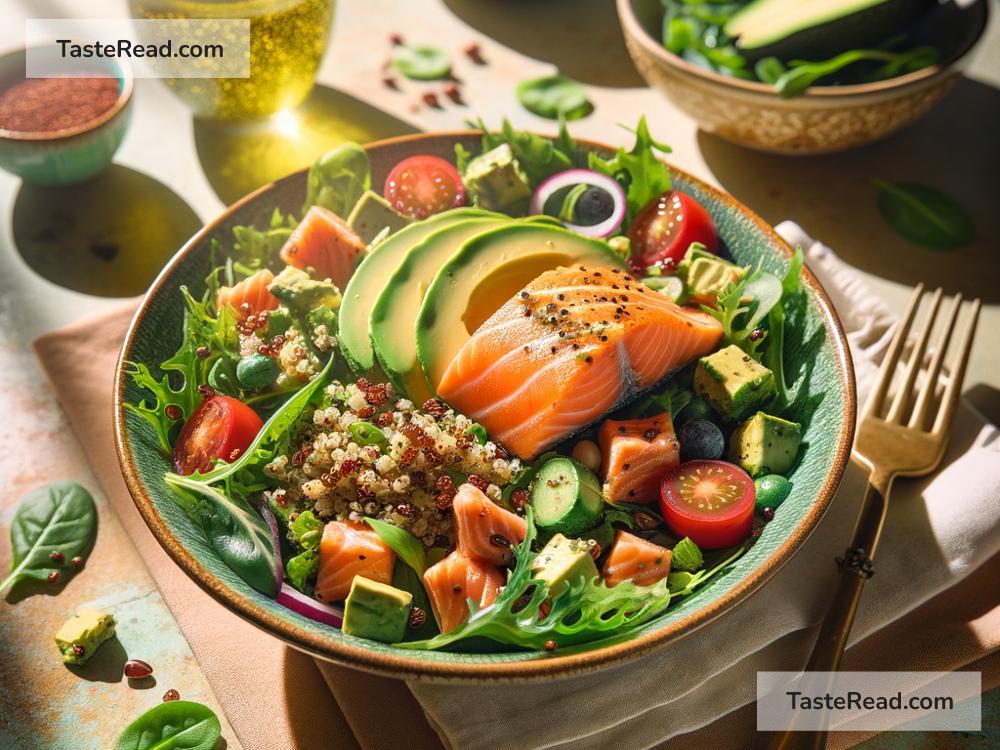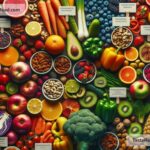The Role of Nutrition in Aging Gracefully
Aging is a natural process that happens to everyone, but how we age can be influenced by many different factors, including nutrition. What we eat plays a big part in how healthy we feel as we get older. Choosing the right foods helps us stay strong, active, and sharp, making it possible to enjoy life to the fullest, even as the years go by. In this article, we’ll explore how proper nutrition can support aging gracefully, and we’ll discuss some tips and key nutrients to focus on.
Aging Gracefully: What Does It Mean?
To age gracefully doesn’t mean trying to look as young as possible. It’s about feeling good, taking care of our bodies, and maintaining our quality of life. Aging gracefully means staying healthy, feeling energetic, and being able to continue doing the things we love.
Our bodies change as we age. Muscle mass decreases, bones become less dense, the skin becomes less elastic, and we may become more prone to certain illnesses, such as heart disease and diabetes. The good news is that the right nutrition can help alleviate many of these issues and keep us feeling our best.
Why Nutrition Matters as We Grow Older
Food is fuel for the body, and what we eat affects every cell and organ. Here are a few key ways nutrition plays a role in aging:
- Boosts immunity: As we age, our immune systems weaken, making us more susceptible to illnesses. A nutrient-rich diet helps fight off infections and disease.
- Preserves muscle mass and bone health: Protein and calcium-rich foods help maintain strong muscles and bones, reducing the risk of fractures and falls.
- Supports brain health: Eating the right foods can keep your brain sharp and reduce the risk of memory problems and cognitive decline.
- Improves digestion: Aging can affect our digestion, but fiber-rich foods keep our digestive systems healthy and reduce issues like constipation.
- Promotes heart health: Balanced eating decreases the risk of high blood pressure, heart disease, and strokes.
What we eat directly affects how our bodies function as we age, so paying attention to our diet is one of the smartest steps we can take for long-term health.
Healthy Aging: Key Nutrients to Focus On
Certain nutrients are particularly important for aging gracefully. Let’s take a look at some of them:
-
Protein: Protein is essential for maintaining muscle mass, which often decreases as we age. Lean meats, fish, eggs, beans, and nuts are excellent sources of protein. Aim to include protein in each meal to help keep your muscles strong.
-
Calcium and Vitamin D: These nutrients are vital for bone health. Calcium is found in dairy products like milk, yogurt, and cheese, as well as in leafy green vegetables like spinach and kale. Vitamin D can be obtained from sunlight, fortified foods, or supplements.
-
Healthy Fats: Omega-3 fatty acids found in fish, nuts, and seeds are linked to improved heart and brain health. They also help reduce inflammation in the body, which is important for aging well.
-
Fiber: Fiber is important for digestion and helps prevent constipation, which can become more common as we age. Whole grains, fruits, vegetables, and legumes are excellent sources of fiber. A high-fiber diet can also help lower cholesterol and control blood sugar levels.
-
Antioxidants: Antioxidants protect our cells from damage caused by aging and environmental factors. Foods rich in antioxidants include berries, nuts, dark chocolate, and colorful vegetables like carrots, tomatoes, and peppers.
-
Water: Staying hydrated is key for healthy aging. As we grow older, our sense of thirst may weaken, but drinking enough water is crucial for maintaining energy levels, digestion, and overall health.
What Does a Balanced Diet for Aging Gracefully Look Like?
A balanced diet includes a mix of whole foods from all food groups. This means:
- Lots of vegetables and fruits: Packed with vitamins, minerals, and antioxidants, these should make up a significant portion of your daily meals.
- Whole grains: Opt for brown rice, oats, whole-wheat bread, and other whole grains for fiber and energy.
- Lean proteins: Choose fish, chicken, beans, tofu, or eggs to build and maintain muscle.
- Healthy fats: Add sources of unsaturated fats, like avocado, olive oil, and nuts, to your diet.
- Low sugar and salt: Cut down on processed foods, sugary drinks, and salty snacks to protect your heart and kidneys.
- Hydration: Drink plenty of water throughout the day, and include foods with high water content, like cucumbers and watermelon.
Tips for Eating Well as We Age
- Plan balanced meals: For example, pair a small serving of grilled fish with roasted vegetables and brown rice for a nutrient-packed dinner.
- Snack wisely: Choose healthy snacks like nuts, yogurt, or fruit instead of chips and cookies.
- Cook at home: Preparing meals yourself gives you more control over what goes into your food.
- Listen to your body: Pay attention to hunger and fullness cues to avoid overeating or undereating.
Conclusion
Aging gracefully isn’t just about genetics—it’s also about how we treat our bodies, and nutrition plays a major role in that. By eating a balanced diet rich in essential nutrients, we can support healthy muscles, bones, and organs, improve brain function, and lower the risk of chronic diseases.
The sooner we adopt healthy eating habits, the better. However, it’s never too late to make positive changes to your diet. Start small and focus on adding nutrient-rich, whole foods to your meals each day. Remember, good nutrition is the foundation for living well at any age, helping us enjoy vibrant, healthy years ahead.


